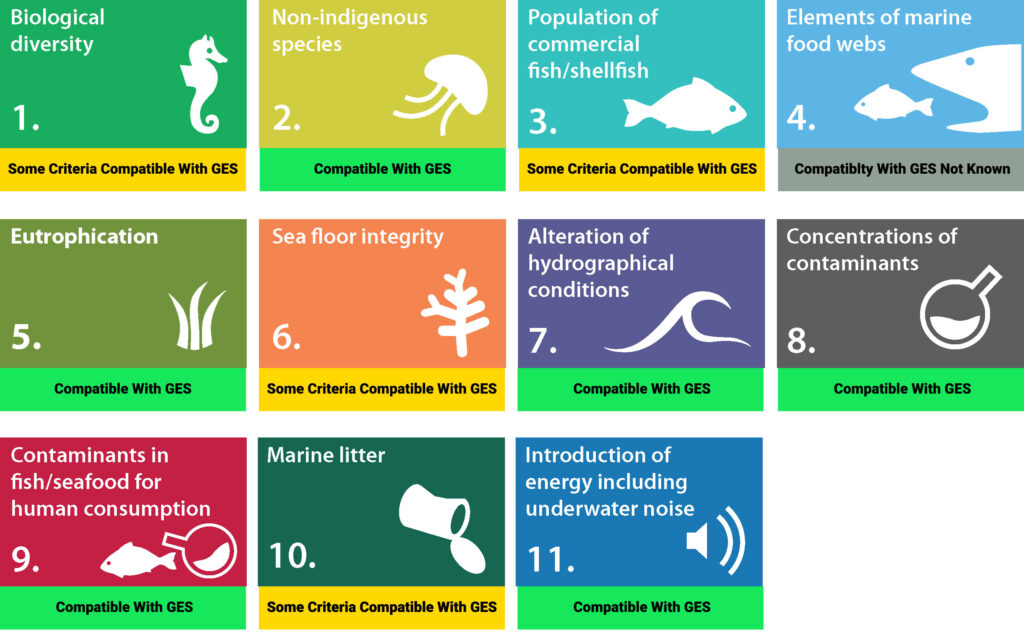European marine waters cover an area that is larger than the European land mass and a coastline three times that of Africa. Many of the threats facing Europe’s seas require cooperation between Member States to tackle them effectively. The European Commission (EC) has developed its own marine policy framework in parallel to a set of international conventions that cover all marine waters.
The Marine Strategy Framework Directive (MSFD) is European legislation which aims to achieve Good Environmental Status (GES) for all marine waters in Europe and protect the resource base for marine related economic and social activities. The MSFD was adopted in 2008 and is implemented in six-year cycles, with the objective of meeting GES by 2020. We are currently in cycle 3 (2023-2028), with EU Member States required to report to the EU every two years. It is structured around 11 descriptors, which describe the state of the marine environment, as well as anthropogenic (manmade) pressures on the marine environment.
Ireland’s Department of Housing, Local Government & Heritage most recently published the “Public consultation on Ireland’s Marine Strategy Framework Directive Marine Strategy Part 1: Assessment (Article 8), Determination of Good Environmental Status (Article 9) and Environmental Targets (Article 10)” in July 2024. Unfortunately, as well as missing the 2020 deadline to achieve GES, in this cycle, Ireland reported only six of the 11 descriptors had achieved GES, while another four had partially achieved GES. Descriptor 4, Food Webs, was considered too complex to determine.

Image: Only six of the eleven descriptors have achieved Good Enviornmental Status (GES).
In 2024, SWAN responded to the DHLGH’s public consultation. We expressed concern at the data deficiency that prevented many indicators from being able to be fully assessed for GES, though recognised the improvement on previous cycles. We call for increased resources both for data collection and monitoring at sea, including the utilisation of citizen science and reports from environmental NGOs in future assessment.
Ireland’s marine environment is one of our greatest national resources, with an area ten times our landmass. Ireland’s seas are among the most biologically diverse in Europe. As an island nation, the sea has played a vital role in shaping our history, our culture, our way of life and our economy. As the range and intensity of human activities in Irish marine waters increase, so too will the associated pressures on the marine environment. It is vital that we understand how these pressures both individually and cumulatively impact on the integrity of entire marine ecosystems.

